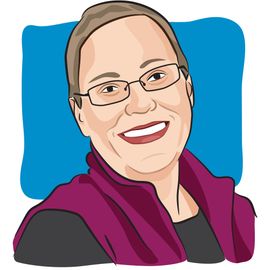- About Us
- Advertise / Support
- Editorial Board
- Contact Us
- CancerNetwork.com
- TargetedOnc.com
- OncLive.com
- OncNursingNews.com
- Terms & Conditions
- Privacy
- Do Not Sell My Information
- Washington My Health My Data
© 2025 MJH Life Sciences™ and CURE - Oncology & Cancer News for Patients & Caregivers. All rights reserved.
5 Ways to Feel Less Isolated After a Cancer Diagnosis

Martha lives in Illinois and was diagnosed with metastatic breast cancer in January 2015. She has a husband and three children, ranging in age from 12 to 18, a dog and a lizard.
There are ways to bring a sense of belonging back to your world.
The world can get small with a diagnosis of cancer. It can feel like a once-expansive place where there are suddenly insurmountable walls and gulfs impossible to travel. Countless doctor visits, scan after scan, blood work, fatigue, fear, anger and grief isolate the person who has cancer. I know, from my feelings of empathy if not from experience, that this is true no matter the stage of cancer. But I also believe it's a special issue for those of us with metastatic disease.
It's easy to become that isolated, and it can happen quickly. One day I had a life, the next day I had cancer. There are still times when it's just me and my cancer, and I think that's probably just the nature of living with this disease. Unlike a patient who rings a bell or who has a final treatment date on her calendar, I have to find my own way to mark a life moving forward.
One of those ways is number two on my list of techniques to feel less isolated, but there are others. If you are feeling alone, and I know some of you are because isolation is usually one of the very first things mentioned when I meet someone else with metastatic cancer, my hope for you is that you find a way to bring a sense of belonging back to your world.
1. Get out of bed. I've been there: Too tired from treatment to do more than two things during the entire day, and one of those is just getting out of bed. But I do believe that trying to stick to a routine as much as possible can be helpful in preventing a spiral into further isolation. Take a shower, sit outside, do one thing that moves you toward activities that help you feel better.
2. Write it down. I've spent my life writing out my experiences, observations and feelings in diaries and notebooks. Writing forces me to confront both the good and bad that I see, and allows me a way to accept the way I feel as legitimate, while often showing me a way to feel or see or do things another, sometimes better, way. Journaling doesn't literally put me in contact with others, but it does help me to understand that what I am going through is universal in a larger sense.
3. Say it out loud. Sometimes just telling yourself what you want is enough to help you start acting on it. When I'm feeling particularly alone, I remind myself that I don't have to feel that way. There are people I can reach out to who, while they may not know exactly what I am experiencing, can provide at least temporary relief from that sense of isolation. I've also learned to say, "I feel alone" out loud to people I love. There are times when I know that this hurts to hear and there are times when just knowing I was heard changes how I feel. Early in my diagnosis, I would first go to my friends or family, but over time, the people I know through metastatic disease have become some of my greatest sources of comfort and connection.
4. Find your people. Those with breast cancer have a multitude of organizations ready to help in whatever way they can. Other types of cancer are also well-served by nonprofit groups. If your hospital or clinic has a patient advocate or navigator, ask for information in finding the best groups for your situation. It's also relatively easy to find these groups online, many of which have comprehensive websites that provide immediate resources, such as articles and videos, as well as methods to get in touch with a fellow patient or phone support group.
5. Advocacy works. If you have the energy, volunteering in one way or another for a group that's brought you back into a world with connections is a service to others and also to yourself. I'm an example of this, since I found real support at two places in particular (Living Beyond Breast Cancer and the Wellness House in Illinois) I've tried to contribute to both through my time and energy — and those connections, which started out small, have spread to other groups and people, creating a web of support that's there when I need it.
Related Content:



